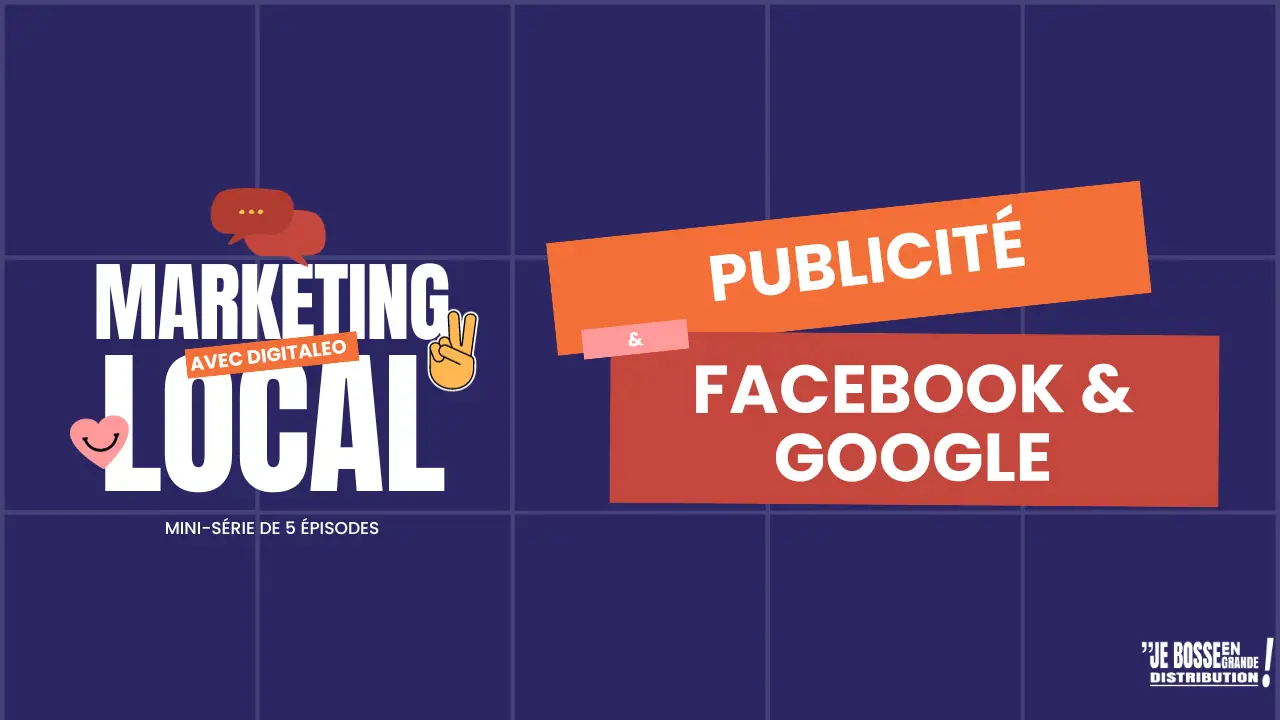in local communication, we know how important social networks are: they are easy to use, they are accessible, they allow quick sharing of information from the point of sale. On paper, Facebook & co is attractive because it offers businesses the promise of building a local community and make noise around your brand.
In 2023, and even 2024 as we approach it, another lever is being advanced in advertising. Whether through Facebook Or Googleprogresses because:
- allows you to expand your audience;
- costs are affordable;
- enables us to meet several objectives;
In this podcastMathilde shows us what you need to know make better use of Facebook and Google ads.
Why local advertising at points of sale?
PUSH local advertising is still underutilized by points of sale. It is often regarded as technical and begins to be imitated by businesses, supermarkets and shopping centers who consider it an integral means of introducing their point of sale: “You must see local advertising with the aim of increasing traffic at the local point of sale in a specific catchment area,” first explains Mathilde.
This rise local advertising is explained following the “explosion of ‘nearby’ requests in recent years”. Since then, local advertising has established itself as a real lever for brands to reach local consumers and generate qualified in-store traffic, and brands use it as a real lever to broadcast personalized and authentic messages.
What you need to know before you start local advertising
However, local advertising must respect – just like the use of social networks – very precise codes: “good advertising requires, for example, as many personalized images as possible that will appeal to people locally”, admits our expert, “it really works best to advertise from the shopkeeper behind his window, the one you know, because you’ve already passed by this store, that’s local advertising for us,” notes She.
This advertising has very different codes from the so-called “national” communication. For many brands today, delivering communications that are too general “doesn’t work at all,” confirms Mathilde: “because national advertising won’t want to emphasize the same things. PUSH local advertising is there to help save traffic or local notoriety “. “For her, local advertising is a bit like the same codes as organic communication (…). On the one hand, we will try to contextualize and on the other hand, we will provide authenticity.”
Advertise locally is also carried out by the desire not to spend money foolishly. Because sometimes advertising is complex, it requires knowledge of several ingredients: “It is clear that the interest is that the point of sale or the craftsman or the SME does not spend his budget unnecessarily..
Understand the difference between organic communication and local advertising
There is a major difference between the two:
- PUSH organic communication : “with an organic post we are talking to people who know us, who are there, who clicked the button to follow you (…). Organic is truly ultra-community. We share the company’s values”;
- PUSH local advertising : “in advertising, we generally target Internet users who do not know the person who advertises, but who have shown an interest related to their activity (…)”;
Behind local advertising, “the goal is to find the store and find people who aren’t already following us.”
Inevitably, the question of platform arises. Today, these two are supposed to be very complementary in marketing strategy: on the one hand we have Facebook (which is primarily a social network) and on the other Google (which is considered a research engine. about it here in the first episode). These two core platforms account for nearly 80% of ad spend.
So to the question “How to decide between Facebook and Google?” “, our expert’s answer is simple: “ideally, we don’t choose between the two, we play on the complementarity of both,” he smiles.
As part of the local marketing strategy:
- Facebook is a particularly effective lever at the top of the funnel, i.e. at the discovery stage, to develop visibility/awareness of your brand
- Google it hits at the bottom of the funnel because it allows you to target search intent in an extremely precise way, such as people who have been exposed to Facebook ads and want to be contacted again or learn more about your products/services and who will search on Google: Google is a privileged lever for engaging the target at the purchase stage and generating traffic at the point of sale.
Advertising on Facebook and Google: how to be local?
Learn how to digitize your network’s local investments by enabling outlets to activate optimal advertising campaigns on Facebook and Google.

